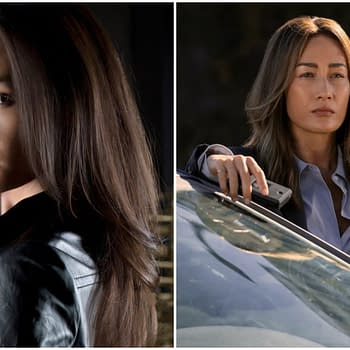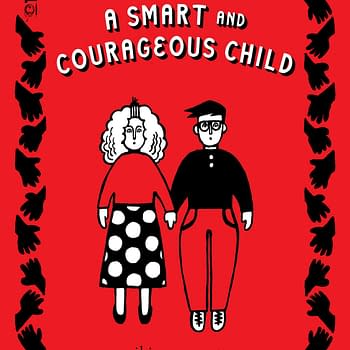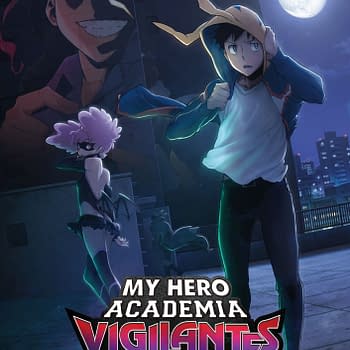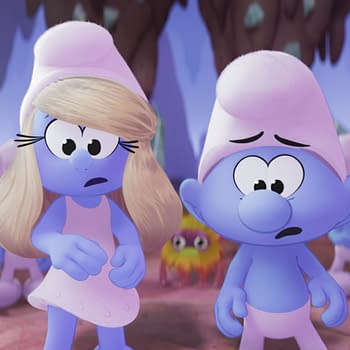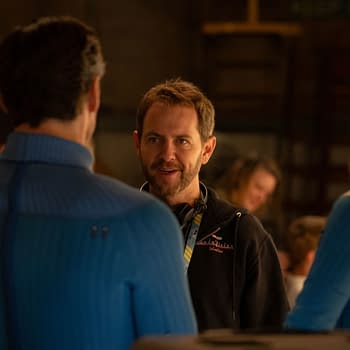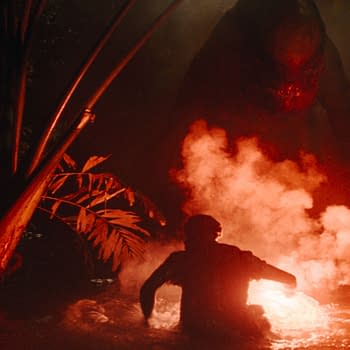Posted in: Movies | Tagged: Chen Yunshang, History, hua mulan, lady general hua mulan, movies, mulan joins the army, nancy chan, Shaw Brothers
Mulan Joins the Army: 1939 Mulan Movie is Still the Most Fun
Mulan Joins the Army is the earliest available movie version of the Mulan story. There were two silent movies made before it, but they're lost. It's the first talkie movie of the story, made in 1939, and it's still the most fun movie version.

2020 has been a weird and messy bumper year for Mulan. With the Disney live-action remake of the 1998 animated version and about four more live-action versions and another animated version, the latter five were only made and released in China. Having seen all of them, I can say none of them was very good. That brings me back to Mulan Joins the Army.
The original Ballad of Mulan from around 400 A.D. was passed on orally before being written down and published in the Tang Dynasty over two centuries later. Mulan joins the army so that her ailing father doesn't have to, fights the war disguised as a man, then returns home when the war is over and puts on a dress again, surprising her army comrades that she was a woman all along. It's quite sparse, which gave subsequent writers, novelists, and movies plenty of room in between to inject all kinds of themes and ideas into it, often for propaganda purposes. The movies are no different. They're all Chinese nationalist propaganda. This one is also the first overt feminist propaganda movies.
"Mulan Joins the Army" Introduced the Major Movie Tropes
Mulan Joins the Army was made when Japan was declaring war with China and was considered a propaganda piece exhorting the men of China to join the fight against the Japanese. Mulan joins the army to fight the invading nomads, here not really named Mongols or Ruran tribes but clearly referencing Japanese invading. The corrupt and incompetent generals are deliberately reminiscent of the corrupt and incompetent Chinese government and warlords. Mulan gets permission from her parents to join the army in her father's place. It was the 1998 Disney cartoon that introduced the trope that she sneaks off. The movie is also the most feminist version of the Mulan story.
When the story begins, Mulan is already good at fighting and hunting, doesn't back down from sexist taunts, and frequently runs rings around any men who try to mess with her. When she joins the army, the other soldiers initially make fun of her for being too girly, and she proceeds to beat them at fighting. Unlike the modern movie versions, Mulan never feels depressed or any self-doubt or angst. She's Wonder Woman here. There's even a scene where she sneaks into an enemy camp "disguised" as a woman, flirts with a couple of enemy soldiers before straight-up stabbing them to death. She even quips, "That was fun!" This movie was also the first time she was given a love interest in the form of a fellow soldier and officer that she marries when the war is over. Just about every subsequent Mulan movie has taken that cue from this one, including Disney's.
The First Mulan Movie that Really Mattered
Mulan Joins the Army was shot in Shanghai under extremely difficult circumstances since the Japanese were literally on the doorstep of the city. The majority of Shanghai's directors and movie stars had left the city, and the producer ended up recruiting the screenwriter and star from Hong Kong. The movie was both a critical and commercial success and made its leading lady Nancy Chan aka Chen Yunshang, a star. She makes being Mulan look like fun. As one of the first feminist propaganda movies, that's not bad. The next Mulan movie wouldn't show up until 1964 when Shaw Brothers produced Lady General Hua Mulan, which remade this story as a Peking Opera, effectively making it the first Mulan musical before the 1998 Disney cartoon.
Mulan Joins the Army is currently in the public domain and has been posted on YouTube. The Modern Chinese Cultural Studies channel has a copy up with decent English subtitles.




